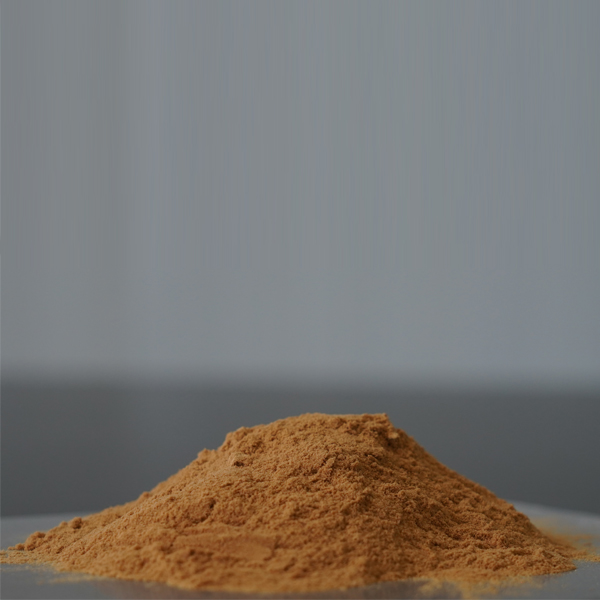
News
ਨਵੰ. . 08, 2024 19:25 Back to list
amino acid chelated calcium fertilizer factory
The Role of Amino Acid Chelated Calcium Fertilizer in Modern Agriculture
In recent years, the agriculture sector has seen a significant shift towards more sustainable and efficient practices. One of the advancements leading this change is the utilization of amino acid chelated calcium fertilizers. These innovative fertilizers represent a blend of modern agricultural science and natural biology, providing numerous benefits that can enhance crop growth and soil health.
Understanding Amino Acid Chelation
Amino acid chelation refers to the bonding of amino acids with minerals, specifically calcium in this context. Chelation is a chemical process where an organic molecule (in this case, an amino acid) binds to a metal ion (calcium), making it more bioavailable for plant uptake. This method enhances the solubility and absorption of calcium by plants, ensuring that the nutrient is more effectively utilized.
Calcium is an essential macronutrient crucial for plant development. It plays a vital role in cell wall structure, signaling pathways, and nutrient transport. However, traditional calcium sources can often be poorly absorbed by plants, especially in soils with high pH or low organic matter. By using amino acid chelation, farmers can address these challenges and improve nutrient efficiency.
Advantages of Amino Acid Chelated Calcium Fertilizer
1. Improved Nutrient Bioavailability The primary advantage of amino acid chelated calcium fertilizers is the increased nutrient bioavailability. The chelation process allows the calcium to be readily absorbed by plant roots, ensuring optimal growth conditions.
2. Enhanced Plant Growth With more available calcium, plants exhibit improved growth rates, better root development, and enhanced fruit quality. Calcium also helps in mitigating physiological disorders such as blossom end rot in tomatoes and bitter pit in apples.
3. Soil Health Optimization These fertilizers not only benefit the plants but also contribute positively to soil health. The amino acids can improve soil structure and microbial activity, leading to increased organic matter and nutrient retention in the soil.
4. Stress Resistance Amino acids play a significant role in improving plant resilience to environmental stressors. Plants treated with amino acid chelated calcium fertilizers exhibit increased resistance to drought, salinity, and disease, significantly enhancing crop yields.
amino acid chelated calcium fertilizer factory

5. Environmental Friendliness As agriculture increasingly strives for sustainability, amino acid chelated fertilizers stand out due to their environmentally friendly nature. These products are less likely to leach into waterways, reducing the risk of pollution and promoting a healthier ecosystem.
The Manufacturing Process
The production of amino acid chelated calcium fertilizers involves several key processes in a sophisticated factory setting. First, calcium sources such as calcium carbonate or calcium sulfate are combined with amino acids – often derived from plant or animal proteins. The mixture undergoes a chelation process facilitated by specific pH conditions and temperatures.
Quality control is essential throughout this manufacturing process. High standards must be maintained to ensure that the chelation is effective, maximizing nutrient availability. Factories producing these fertilizers often invest in state-of-the-art technology to analyze and test their products comprehensively.
Application and Usage
Farmers can apply amino acid chelated calcium fertilizers through various methods, including foliar spraying and soil application. The versatility of these fertilizers makes them suitable for a wide range of crops, from vegetables to fruits and grains. Timing is crucial; applications during critical growth stages can yield substantial benefits.
In addition to traditional agriculture, these fertilizers are also valuable in organic farming practices where natural inputs are emphasized. Their compatibility with other organic fertilizers enhances their appeal in sustainable agriculture.
Conclusion
In conclusion, amino acid chelated calcium fertilizers present a revolutionary approach to nutrient management in agriculture. By enhancing the availability of calcium and improving plant health, these fertilizers contribute significantly to sustainable farming practices. With the growing demand for high-quality produce and environmentally friendly methods, the adoption of amino acid chelated calcium fertilizers is likely to increase, paving the way for a greener and more productive agricultural future.
Farmers looking to maximize their yields while maintaining eco-friendly practices should consider incorporating these advanced fertilizers into their crop management strategies. As research in this field continues to evolve, the potential benefits of amino acid chelated calcium fertilizers will undoubtedly shape the future of agriculture for the better.
-
Polyaspartic Acid Salts in Agricultural Fertilizers: A Sustainable Solution
NewsJul.21,2025
-
OEM Chelating Agent Preservative Supplier & Manufacturer High-Quality Customized Solutions
NewsJul.08,2025
-
OEM Potassium Chelating Agent Manufacturer - Custom Potassium Oxalate & Citrate Solutions
NewsJul.08,2025
-
OEM Pentasodium DTPA Chelating Agent Supplier & Manufacturer High Purity & Cost-Effective Solutions
NewsJul.08,2025
-
High-Efficiency Chelated Trace Elements Fertilizer Bulk Supplier & Manufacturer Quotes
NewsJul.07,2025
-
High Quality K Formation for a Chelating Agent – Reliable Manufacturer & Supplier
NewsJul.07,2025
